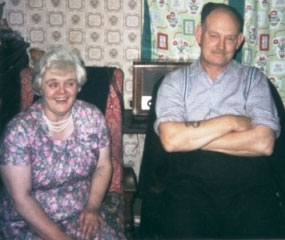I don’t remember exactly when I became interested in electricity and electronics
I don’t remember exactly when I became interested in electricity and electronics; it probably developed during my first year or two of science lessons at secondary school. We had a really excellent science teacher called Mr. Roberts – nicknamed ‘Potsun’ after the character Potassium Roberts in, I think, The Eagle comic. I enjoyed science and ‘Potsun’ made the lessons great fun with practical demonstrations such as blowing up a treacle tin using town gas from the mains. However it began, the interest has stayed with me ever since, first as a hobby and now as a business.
The increasing availability of transistors in the sixties, and the safety of powering things from a 9V battery, made constructing different project circuits from magazines such as Practical Wireless and Everyday Electronics easier and relatively cheap. I became quite adept at building and modifying these circuits, especially at soldering the rather fragile transistors, diodes and LED’s without ruining them. Also, from an early age my father had always taught both my brother George and me to use tools correctly and accurately. This expert guidance and the fact that we were taught metalwork at secondary school meant that I was able to mark out, drill and cut boxes in which to fit my various projects with a degree of expertise.
My practical experience and general interest in electronics led to Arthur Mattinson offering me a job working alongside his main technician, Norman Rabett, on TV and Radio repairs and installations. I also began attending Lowestoft College to study City and Guilds Radio and Television Servicing Intermediate Level. Although I passed the mock examination, I did not work for Arthur or attend college for long enough to take the actual examination. I did, however, gain an invaluable knowledge of electronic component and circuit theory, and more importantly, an understanding of electrical safety – essential when the metal chassis of the TV set could be connected to 240V AC and still work – which stood me in good stead for both my hobby and parts of my future career.
My interest in public address and sound equipment, and thus the origins of Showlite, started back in the late fifties and early sixties when I remember being fascinated by the van full of valve driven PA equipment and huge horn loudspeakers used at the Leiston Co-operators Day fetes. I have always thought that these were supplied by E. A. W. Nolloth who were based in Norwich, but recent conversations with Ken Yaxley from Yaxleys of Norwich have failed to throw any light on the existence of this company in that area so I’m wondering if my memory is wrong and they actually came from Easter Radio Amplification (ERA). In the mid-sixties friends and I often used to visit the Motorcycle Scrambles held at Mumberry Hills, Westleton. The PA system for these was provided and operated by Bob Henderson from Wyndham in Norfolk. I always went with the intention of watching the racing, but, somehow ended up chatting to Bob and watching him at work. I just knew that one day I wanted to do that! Bob is no longer alive, but his son Peter ran the business for some years. We have met a couple of times at the Eye Show when I’ve been there for BBC Radio Suffolk. I believe that Peter has now also retired and the business is now owned/run by his engineer. At one time I was aware of a website and museum called the History of PA which was created and looked after by Ken Yaxley, however both the website and any mention of the physical museum or the History of PA Trust seem to have disappeared. At present (April 2019) I am trying to find out what happened to it all.
Eventually in the late sixties, with Bob’s encouragement, I acquired my first PA amplifier from RSC Ltd. of Henconner Lane, Leeds. It used valves and of course it was mains operated. The power output of only 12 watts was tiny compared with the 120 or even 240 watts I use today, but, it was quite enough for a village fete. Around the same time a work colleague at Wells and Son gave me a ‘transverter’ which was a very noisy piece of equipment able to mechanically convert 12 volts DC from a car battery into a very rough 240 volts AC mains. It consumed lots of battery power in the process, but, it did mean that my equipment could be used in a field away from mains power for two or three hours.
Other bits and pieces followed, particularly a Fidelity reel-to-reel tape recorder with which I began making recordings of services at the Baptist Mission Room (now demolished) in Victory Road, Leiston where my uncle Percy Marjoram was the minister, and of concerts given by the Leiston British Legion Band of which my father was Bandmaster. Later I progressed to a Philips tape deck, but, although quite a bit more expensive, it was never as reliable as my trusty Fidelity!

